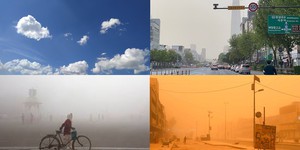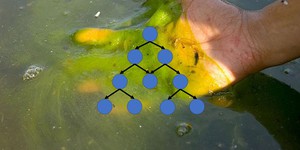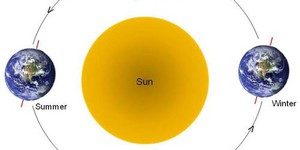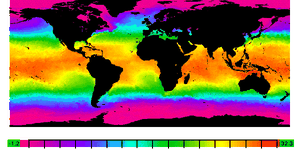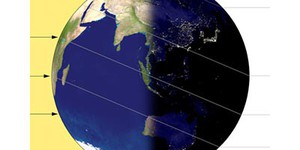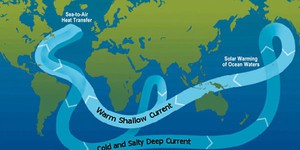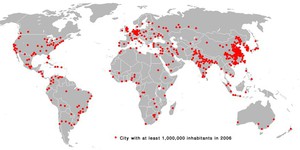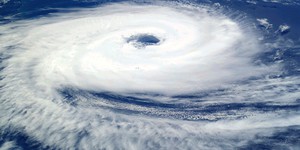Climate Action Science Projects (30 results)
The United Nations Sustainable Development Goals (UNSDGs) are a blueprint to achieve a better and more sustainable future for all.
These projects explore topics key to Climate Action: Take urgent action to combat climate change and its impacts.
These projects explore topics key to Climate Action: Take urgent action to combat climate change and its impacts.
|
Select a resource
Coding Projects
Sort by
|
Air pollution is a growing issue, especially in cities, due to the rise of industrial activities, increased fossil fuel consumption from things like car use, and natural events like wildfires. This pollution is measured by the Air Quality Index (AQI), which shows how clean or polluted the air is. But what if we could predict changes in AQI to help communities plan ahead to protect people who are at risk from air pollution? That’s where machine learning comes in. In this project, you will…
Read more
Understanding the water quality of our rivers, streams, and lakes is critical for maintaining healthy ecosystems and sources of drinking water. Dissolved oxygen is one key water quality measurement that impacts aquatic life. But how can we predict how water quality might change in the future so we can intervene to keep our water healthy? With machine learning! In this project, you will gather water quality data for a location of your choice and use a random forest model to predict future…
Read more
New
How do you feel right now? Do you remember how you felt a few hours ago? How about yesterday or last Wednesday? What if you could track your emotions throughout the day and use this information to help improve your mood and well-being? In this science project, you will program a simple, pocket-sized device that you can carry around with you to log your feelings whenever you want or on a specific schedule.
Read more
Do you live someplace where you get to experience the full glory of all four seasons? If so, you know well the heady blossoms and dramatic skies of spring; the long, sun-drenched days of summer; the trees shaking in crimson and gold in fall; and the sparkling, brittle snows of winter. But you might not know why we have these seasons, over and over again, in a cycle as predictable as the rising and setting of the Sun. The reasons for the seasons are surprising and have to do with Earth's tilt…
Read more
Of course it can, you say: ice is water and ice floats! And you're right. But we're talking about water in the liquid phase (the title reads better without getting overly specific). So how about it? Can liquid water float on water? Check out this project to find out.
Read more
Has the temperature in your house felt hotter or colder recently? This could be due to the greenhouse effect. The greenhouse effect states that gases in the atmosphere, such as CO2, might increase the surface temperature of Earth. In this science fair project, you will build a small model of Earth and use it to see how the temperature varies, compared to outside of the model. If you select this science fair project, you will be a part of the effort that is working to figure out what role…
Read more
New
Can AI understand human language? In the future, AI could aid in emergency interpretive service in the hospital when translators aren't available. But can current AI algorithms understand non-verbal languages like sign language? In this science project, you will test whether AI can learn sign language gestures or phrases to see if it can be used for interpretation.
Read more
The oceans are a precious natural resource, part of Earth's carbon cycle. But what happens if the oceans absorb too much carbon dioxide? Many scientists are concerned that the increased absorption of carbon dioxide is causing them to become more acidic. What impact does that have on the marine life? In this ocean science fair project, you will demonstrate ocean acidification and investigate the effect on the shells of marine life.
Read more
Many people are surprised to learn that the season's we experience—winter, spring, summer and fall—have nothing to do with the distance of Earth from the Sun. In this science fair project, you will investigate how the temperature on Earth actually depends on the tilt of Earth's axis of rotation.
Read more
Ocean currents have profound effects on the climates of the continents, especially those regions bordering on the ocean. For example, the Gulf Stream (a warm current that goes around the North Atlantic Ocean) is thought to make northwest Europe much warmer than it would otherwise be. Similarly, the California Current is thought to keep Hawaii cooler than other land masses at the same latitude as it. In this ocean science fair project, you will model the behavior of these "rivers" of hot and…
Read more
If you leave an ice cube out on the kitchen counter and come back to check on it in awhile, what do you find? A puddle! The same thing happens to ice in nature—if the temperature gets warm enough, it melts. In this ocean science project, you will find out what happens to sea levels if the ice at the North Pole melts, or if the ice at the South Pole melts. It is an important question for the millions of people who enjoy living along the coasts of the world.
Read more
We've all heard that hurricanes draw their immense power from warm ocean waters. Of course, many factors contribute to the formation and growth of a hurricane, but can we expect to find that the warmer the water, the stronger the hurricane will be? This project shows you how to use online data archives to investigate this question.
Read more
|

